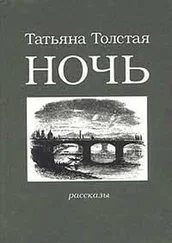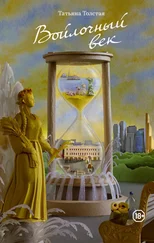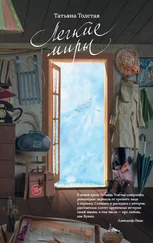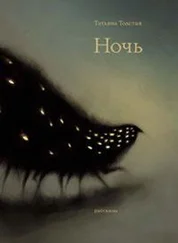Tatyana Tolstaya
AETHERIAL WORLDS
My grandfather Aleksey Tolstoy, a famous Russian writer, attended the Saint Petersburg Technological Institute in his youth, starting in 1901, thinking he would like to become an engineer. But he never became one. He described to my father how difficult it was for him studying there.
Here is his professor by the blackboard, addressing the students: “Let’s picture a cigarlike object….” And that’s it! My young grandpa is in a trance. He is picturing something cigarlike… he sees a cigar…. You need to clip the end of it before you can smoke it…. Golden cutters carefully trim away the dry brown leaves—what wonderful aroma wafts from quality Havana tobacco!… Out of nowhere appears a balloon-shaped brandy snifter full of heavy, red-brown cognac, casting golden reflections…. Oh, to grasp the glass in your palm, warming it… the undulating golden flickers… the bluish smoke… you inhale it, you tap the cigar to break off the ash. It’s dusk, the heavy drapes drawn back. Outside, through the window, there is a crepuscular early evening on snowy Saint Petersburg streets; a sleigh pulled by a courser silently whooshes by—who’s rushing, and where? To the theater? To a romantic rendezvous?
Suddenly reality interrupts this waking dream. Chairs thunder, the professor erases the blackboard, wiping away formulas interesting and useful to any engineer—“See you next time, gentlemen!”
Grandfather never finished his studies at the Institute; he committed himself wholly to literature, becoming famous for, among other things, his historical novels. Writers who knew him personally described his imagination in the later years as clairvoyant: he was able to improvise, creating on the fly the most complicated dialogues, keeping them psychologically astute and peppering them with convincing historical specifics. He saw the past in great detail: every button on a jacket, every wrinkle in a dress.
This ability to daydream was passed on to me, although not to the same extent. I didn’t start out a writer, and had no plans of becoming one. Although I happily swam in imaginary expanses, I had no words to describe them.
Then one fine day, when I was thirty-two years old, I decided to correct my myopia by undergoing surgery in the famous eye clinic of Professor Fedorov. This was in 1983, before they used lasers for the procedure, as they do now, but instead made corneal incisions by hand, with a regular razor blade. The incisions took three long months to heal. All this time, while the eyes recuperated, you could see things only poorly, approximately, through tears that constantly streamed like rain on the windowpane. And after it was over, one day you’d literally wake up with perfect vision, 20/20.
But before that happened, you had to sit in complete darkness; such were the idiosyncrasies of the process that any light caused insufferable eye pain. At first, for three or four days, the agony was so great that no analgesics, no sleeping pills brought any relief. Then it subsided a bit. Nonetheless, even at dusk my eyes were ablaze, and the temporary respite of night was interrupted by accidental glances at the stars, their light burning like fiery needles. Finally it was all I could do to sit at home wearing dark sunglasses, the black drapes closed, living by touch. Not a single word—neither handwritten nor typed—did my eyes take in during that prison sentence; only music, invisible in its essence, saved me from this existential desert. All that was left of the world was music and pain.
Gradually, something unfamiliar began to happen to my mind. The blindness was still near-total. I didn’t yet dare take off my sunglasses to peer outside, but in my mind’s eye I began to see bright visions from my past. They were not simply visions as before, similar to dreams—no, these were words, phrases, pages of text, plotlines; it was as if someone awoke in my head, a second me, one who had been slumbering until now. Visual experiences now came with a narrative; in fact, they were inseparable from it. If the wording wasn’t exact, then the imagery it conjured seemed obscured by dust or fog, and only the right words cleared it away.
I was remembering—no, I was seeing—my childhood. Our neighbor who lived on the other side of the fence and whom I had long forgotten: I was six when he was sixty—never before could he have been interesting to me. And why him, specifically? No matter: suddenly I saw him, I understood his life, I felt his anxiety and his joy; suddenly his house, his garden, his beautiful but not-so-young tsarina of a wife appeared before me, and with these images words emerged, words that could describe them; a plotline materialized and filled up with meaning. Unexpectedly, the subtext and hidden significance of this yet-to-be-written story appeared—the eternal metaphor of banishment from paradise.
My external eyes were still awaiting the sunrise, while my internal ones were looking around, seeking out details. Here is one. Here is another. Here is a whole bunch. As soon as I was able to emerge from my room into the dim light of the table lamp, I typed up my first-ever short story in great haste. I knew just how to do it—what to write, what not to write—and I understood that what remains unwritten possesses a special kind of power, a certain gravity by absence, similar to a magnetic force that can both attract and repel, a force we can’t see but that is nonetheless there.
This heretofore invisible, hidden world was now within my reach. I could enter it at any point, but it had particular doors—with keys of sound, with lock picks of intonation. The doors could be opened with love. Or with tears.
One day, all of a sudden, my sliced-up eyes could see again; my vision returned completely and immediately, 20/20, as promised. And this was bliss! Meanwhile, I found that the second world, having first appeared to me in darkness, was here to stay; it turned out to be a multifaceted underside of so-called reality, a dungeon full of treasure, an aetherial world through the looking glass, a mysterious box with passcodes to all enigmas, an address book with the exact coordinates of those who never existed.
I don’t know its geography, its mountains, or its seas; it’s so vast, it must be limitless. Or perhaps it’s not simply one world—perhaps there are many. They are unpredictable; they can show themselves to you, or not. Some days they may not let you inside: Sorry, the doors are locked, we’re on holiday. But to the patient and the devoted, they will in the end always yield. The doors will open, and you won’t know what you will come across until you enter.
Truth be told, I’ve always been afraid of it, since childhood. It’s prepared not casually, or whenever the fancy strikes you, but most often for New Year’s Eve, in the heart of winter, in the shortest and most brutal days of December.
Darkness comes early. There is a damp frost; you can see spiky halos around the streetlamps. You have to breathe through your mittens. Your forehead aches from the cold, and your cheeks are numb. But, wouldn’t you know it, you still have to boil and chill the aspic—the name of the dish itself makes the temperature of your soul drop, and no thick gray goat-hair shawl will save you. It’s a special kind of religion, making the aspic. It’s a yearly sacrifice, though we don’t know to whom or for what. And what would happen if you didn’t make it is also a question mark.
Читать дальше







